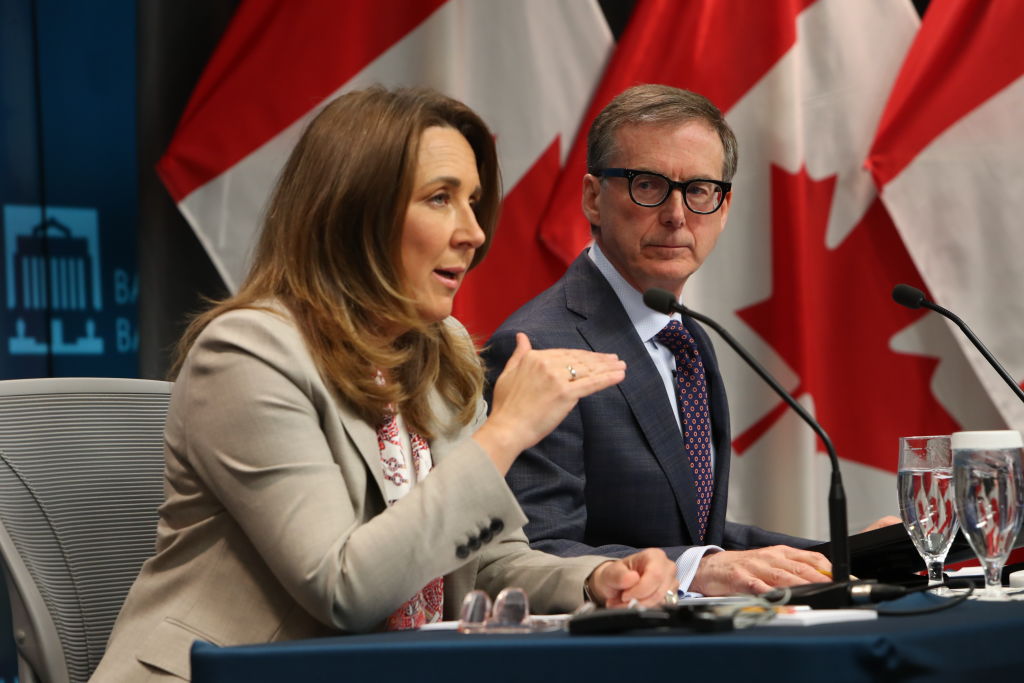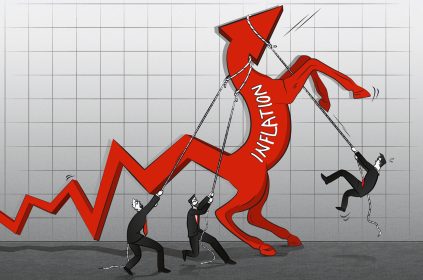In its latest move, the central bank cut its key policy rate by 25 basis points to 3%, marking the sixth consecutive rate cut. However, it noted that trade uncertainty—especially the risk of tariffs—could significantly disrupt the Canadian economy, even if the tariffs were only temporary.
“It was clear that a protracted trade conflict would lead to a decline in economic activity,” reads the summary of deliberations.
“Governing Council members also noted that the adverse impact on the level of GDP would be permanent, and the growth of GDP would be reduced until the Canadian economy adjusts to the tariffs.”
Trade uncertainty clouds forecasts
Canada’s economy, which relies heavily on trade with the U.S., could suffer as a result of these tensions. Almost 75% of Canadian exports go to the U.S., and retaliatory tariffs could push inflation higher, experts warn.
The Governing Council spent “considerable time” discussing how a prolonged U.S. trade conflict could impact output, inflation, and monetary policy.
While they admitted U.S. trade policy is unpredictable, they agreed a prolonged trade conflict would lead to a decline in economic activity.
Members noted that retaliatory tariffs would drive up the cost of imported goods, adding inflationary pressure.
“While retaliatory tariffs would likely represent a one-time increase in the level of prices, members noted that, given the size of the shock, there was a risk that higher import prices could feed into other prices,” the minutes read. “If this leads to an increase in inflation expectations, it could generate higher ongoing inflation.”
The members also discussed the potential short-term impact on inflation expectations. While long-term expectations have remained stable, they noted that businesses may raise prices due to higher input costs, and that a one-time price increase from tariffs could push up short-term inflation expectations. The BoC agreed that monetary policy must guard against the second-round effects of these price shocks.
“Members agreed that monetary policy would need to guard against second round effects of any initial price level shock coming from higher inflation expectations,” the report notes.
Policy stance amidst trade risks
In supporting their decision to lower rates by 25 bps, Governing Council members said the threat of tariffs “had increased uncertainty,” putting pressure on business confidence and consumer sentiment.
Given how unpredictable trade developments are, members agreed it would “not be appropriate” to provide forward guidance on future rate moves, but committed to keeping Canadians informed as the situation evolves.
The Bank also plans to restart asset purchases on March 5, 2025, beginning with term repo operations. “The steady-state level of settlement balances is expected to stabilize within a range of around $50–70 billion over the course of the year,” the minutes note.
Bank of Canada Bank of Canada meeting minutes BoC BoC deliberations BoC rate decision deliberation summary economic outlook Editor's pick summary of deliberations
Last modified: February 13, 2025










